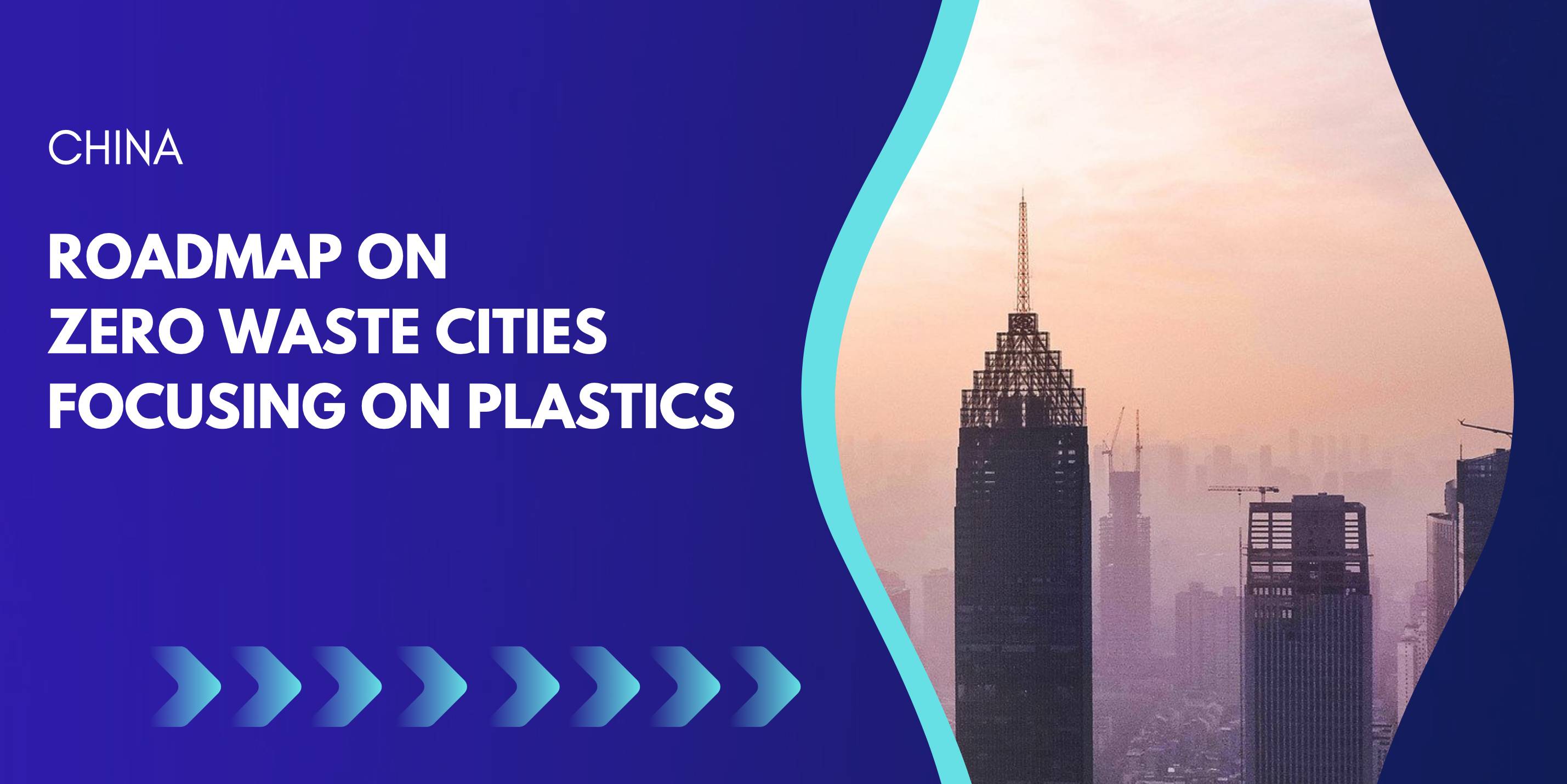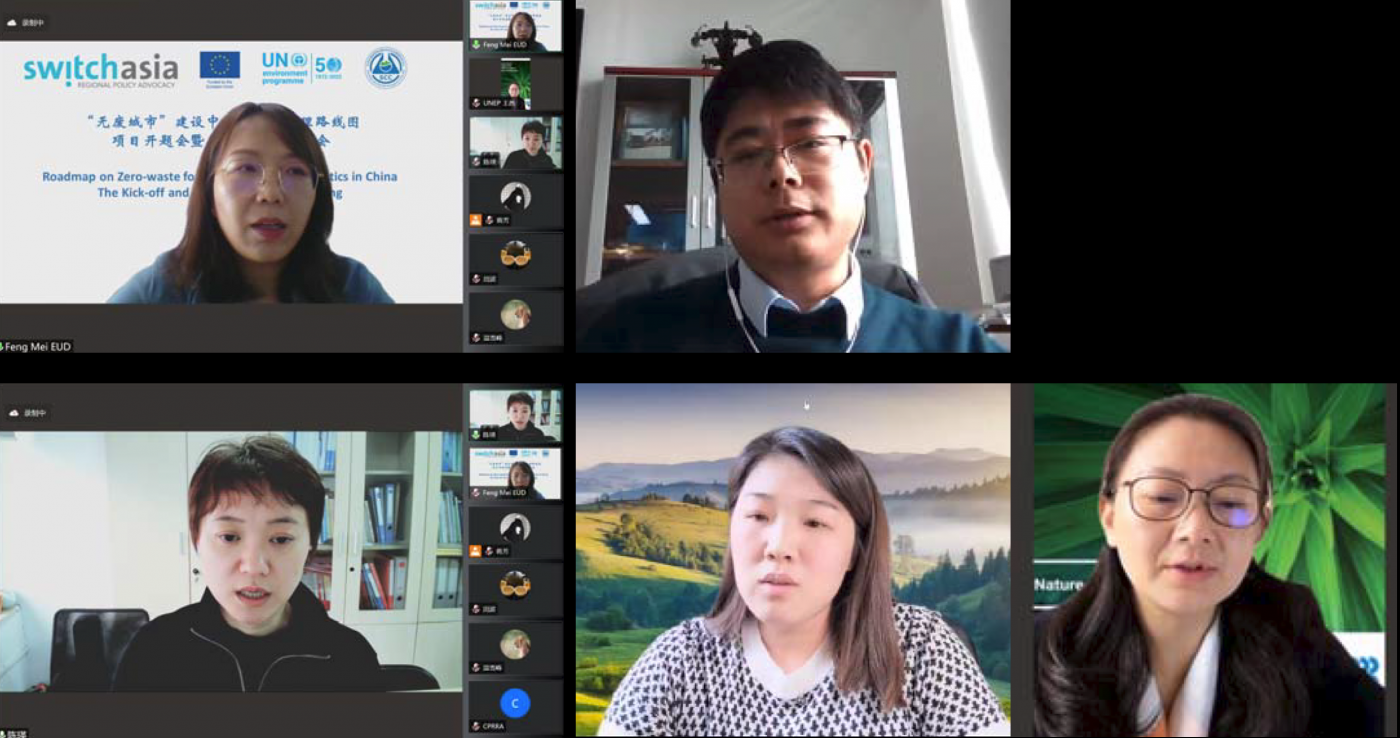
Zero-waste cities are working towards the objective of eliminating waste that is sent to landfill or incinerated by establishing systems that do not generate waste in the first place, and finding ways to reuse, reduce, and recycle waste material.
The national zero-waste pilot city programme announced by the Government of China in January 2019 and completed in 2021, is one of the most important governmental actions to promote Sustainable Consumption and Production (SCP) and the Circular Economy at the city level, with the objective to create an urban development model that avoids waste generation and minimises negative environmental impacts of consumption throughout its whole life cycle. Focusing on the restriction of single-use plastics, as well as pollution control of plastic waste generated from industry, agriculture, manufacturing, commerce and households, plastic pollution control is one of the key areas set in the zero-waste pilot city development in China.
Building on its achievements of the 13th Plan, in the 14th Five-Year Plan of the People’s Republic of China, Fostering High-Quality Development (2021-2025), the country has highlighted the importance of high-quality green development, innovation-driven growth, and reducing the carbon intensity of the economy and peak carbon dioxide emissions before 2030, among others. Following this Plan, the ‘zero-waste’ principle and models are also planned to be scaled-up in more cities, taking into account knowledge exchanges and good practices from European and Asian countries on how to best control plastic pollution at city levels, existing policy instruments, management mechanism and key technologies.
In this context, the European Union funded SWITCH-Asia Programme, through its Regional Policy Advocacy (RPAC) Component, is working closely with the Solid Waste and Chemical Management Technology Center, Ministry of Ecology and Environment of China (MEESCC) to develop a Roadmap on Zero-waste for Cities Focusing on Plastics. The Roadmap will provide strategic guidance on plastics pollution control to local governments and stakeholders under the framework of ‘zero-waste’ city development in China set in the 14th Five-Year Plan period (2021-2025).
A first consultation meeting was held virtually on 18th February 2022 by the MEESCC. More than 20 participants from government agencies, pilot cities, academic institutions and civil society organisations attended the meeting and had a fruitful discussion on the draft outline of the Roadmap on Zero-waste for Cities Focusing on Plastics, including current gaps on plastics pollution control and the expected scope of the roadmap at city level. Moreover, the draft outline and its key sections: 1) institutional system and supervision system; 2) technical system; 3) market system, and 4) capacity building and education, were presented for discussion.

Ms. Feng Mei, Project officer, EU delegation to China emphasised, “Plastic waste management is one of the key priorities set in the EU’s Green Deal. Through the SWITCH-Asia RPAC’s national activity on zero-waste in China, the pilot work experience of ‘zero-waste’ city will be identified, summarised and experiences will be shared from European and other Asian countries."
Ms. Wang Qian, Programme management officer, UNEP China Office highlighted, “Both the control of single-use plastics and recycling of plastic waste are important to address the crisis of climate, nature, and pollution."
Mr. Wen Xuefeng, Director, Department of Solid Waste and Chemicals, MEE of China thanked the EU for its support throught the SWITCH-Asia project and explained, "Plastics pollution control needs a systematic approach and there are still many challenges faced by both the government and industry. Source management (reduction use), availability of alternative products, recycling capacity, and pollutants emission control are four strategies and key aspects for plastics pollution control in China." He also emphasised the importance of analysing the practices and experiences of current zero-waste pilot cities in order to propose an effective pathway on plastics at city level.
In April 2022, a second consultation meeting is expected to take place to advance further discussions on the development of the Roadmap and promote knowledge exchanges on plastic pollution control at city level from both European and Asian countries.
For more information on these activities
Contact:
Dr. Mushtaq Ahmed Memon
Regional Coordinator for Resource Efficiency
United Nations Environment Programme, Regional Office for Asia and the Pacific
Project Manager, Regional Policy Advocacy Component
The EU SWITCH-Asia Programme
Email: [email protected]



